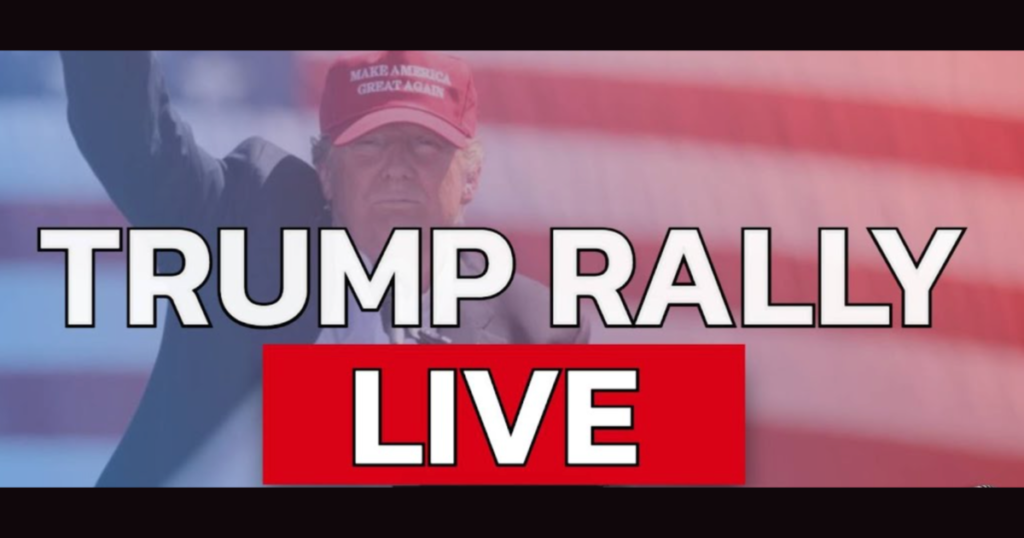On a high-energy day leading up to Election Day, President Donald Trump is set to hold a rally in Pittsburgh, Pennsylvania, marking a significant moment in his campaign itinerary. The rally is scheduled to kick off at 6:00 PM ET, and it is part of a series of events planned for that day, showcasing Trump’s continued direct engagement with his supporters. Earlier in the day, he successfully drew large crowds at two rallies—first in Raleigh, North Carolina, followed by Reading, Pennsylvania. These events are not just a means of energizing his base in crucial swing states but also serve as critical engagement points just hours before voters head to the polls.
The atmosphere surrounding the Pittsburgh rally is one of palpable anticipation, with dedicated supporters arriving at the venue well in advance. Some fans camped out in the parking lot the night before, showcasing their commitment to being part of the event. Reports indicate that a line formed around 4 AM, demonstrating the enthusiasm and dedication of Trump’s supporters. Such eagerness highlights both the fervent loyalty Trump commands among his base and the competitive nature of the upcoming election, where every vote counts.
Social media buzzes with reports and encouragement for attendees, with supporters taking pride in their early arrival and readiness to cheer for the former president. The phrase “No BUSES or TWERKING RAPPERS needed!” suggests a contrast between Trump’s appeal and the entertainment-driven approaches often associated with his political rivals. This rhetoric underscores not only Trump’s distinct style but also his positioning as a populist figure who connects deeply with his base on a values level rather than through mainstream entertainment or conventional campaigning styles.
At these rallies, Trump typically addresses themes central to his platform, which resonate with his supporters, including economic growth, law and order, and a strong national identity. His rallies create a sense of community for attendees, often serving as a rallying point not just for political mobilization but also for the shared values and sentiments expressed within his speeches. The excitement and unity among the attendees foster an atmosphere of solidarity that may influence undecided voters or those contemplating their choice at the last minute.
Following the Pittsburgh event, Trump is scheduled to make his way to Grand Rapids, Michigan, marking his fourth rally of the day. This ambitious schedule reflects his strategy of maximizing outreach in states critical for his electoral success. Michigan is a state that Trump won in 2016 but narrowly lost in 2020, making it a key area of focus as he seeks to reclaim voters who may have shifted away from him in the last election cycle. The ability to draw crowds in multiple locations within a single day serves both to reinforce his message and to energize his campaign team and supporters alike.
As the day progresses, the excitement for the rally in Pittsburgh culminates in a charged atmosphere filled with hope among Trump’s supporters. With Election Day looming, the gathering serves as a crucial opportunity for Trump to solidify his base, invigorate his campaign’s momentum, and push for voter turnout. The dynamics of such rallies illustrate the larger picture of campaign strategies in modern politics, where direct engagement with voters plays an increasingly important role in securing electoral victory. Trump’s ongoing narrative of fighting for the “real” Americans resonates through these events, as he continues to position himself as an advocate for the people against the political establishment—an angle that continues to attract dedicated supporters across the country.

